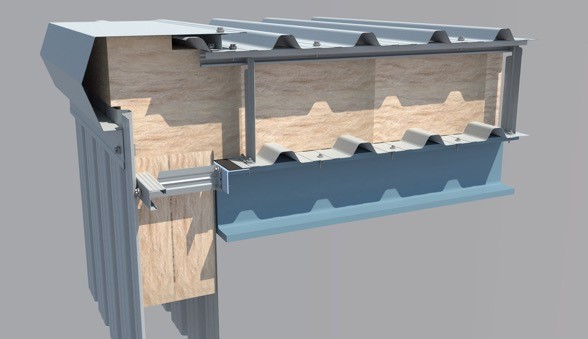In January the government announced the introduction of a national construction materials regulator. Here, Andy Williamson, Commercial Director – UK, for SIG Plc, welcomes the move and discusses the importance of using roofing products that are safe and compliant.
The construction industry is hugely important to all our lives. It is a key driver for the economy, a significant source of employment and, of course, a provider of homes, schools, workplaces, hospitals and leisure spaces.
Rightly, it is subject to a raft of regulations covering, among other things, materials, working methods and practices, and safety.
The roofing sector, as an important part of this industry, has a major role to play. Any measures that help maintain and, where appropriate, drive up standards are hugely welcomed. The appointment of a national Construction Products Regulator can only be a step forward.
The new regulator, set up with a £10 million fund, will be based within the Office for Product Safety and Standards (OPSS) and work with Trading Standards to ‘encourage and enforce’ compliance where it is needed.
Not only will it be able to order the removal of any product that presents a significant safety risk, it will also have the authority to prosecute companies that flout the rules on product safety.
In addition, it will have strong enforcement powers and the ability to conduct its own testing when carrying out investigations.
Well-run roofing companies, and the wider construction industry, should not be wary of this.
Instead, the regulator should be supported and seen as an opportunity to reset and build back any confidence in building safety which may have been lost, while further reinforcing the industry’s determination to prevent unproven products entering the market.
The vast majority of tradespeople go to great lengths to ensure the working practices they implement, and the materials they use, are safe, compliant and fit-for-purpose.
Hopefully, the new regulator, with the support of us all, will be able to root out and put a stop to the types of poor-quality materials and practices that have led to the establishment of this new OPSS division.
In addition to the new regulator, the government has commissioned an independent review to look for weaknesses in product testing regimes. We look forward to reviewing its recommendations, which will be delivered later this year.
As a major distributor of specialist building materials, SIG has always had a strong focus on product quality and ensuring that what we offer meets, if not exceeds, the relevant standards.
We achieve this by:
- Taking the time to build strong relationships with market leading manufacturers where we know their products have been properly tried, tested and approved
- Making sure all stock items have been considered against the appropriate regulatory requirements, such as REACH, covering chemicals content, RoHS (Restriction of Hazardous Substances), Product Safety & Handling, Declaration of Performance, Safety Data Sheets, and many more
- Ensuring all documentation provided by suppliers is validated for legal compliance, and not just taken as read
Our well-established compliance tracking system, SIG Assured, also keeps pace with changing legislation and product development, consistently monitoring which companies and products are compliant.
This comprehensive approach to compliance means that roofing contractors can be confident the materials they have bought meet the legal requirements and their provenance is fully traceable.
We are also a member of the national Construction Products Association (CPA), which champions quality products and provides us with an additional route to track changes in regulation and government policy.
The CPA also provides the opportunity for industry to offer advice to policy-makers on issues such as decarbonisation and greener construction methods.
There are, of course, a number of excellent roofing industry-led initiatives already in place, where the focus is on increasing skills and operating in a professional manner.
Not least is the National Federation of Roofing Contractors’ (NFRC’) Competent Person Scheme which allows roofing contractors to self-certify that the work done meets the requirements of Approved Document L1B of the Building Regulations, with a 10-year insurance backed guarantee.
There is also good work being done in setting and maintaining standards by CoRC (Confederation of Roofing Contractors).
Systems that highlight the standards to which construction products are held are of vital importance to the industry, not only to ensure the very highest safety considerations are in place both during a project and after its completion, but also to reassure the public and guarantee their continued confidence in the construction sector.







